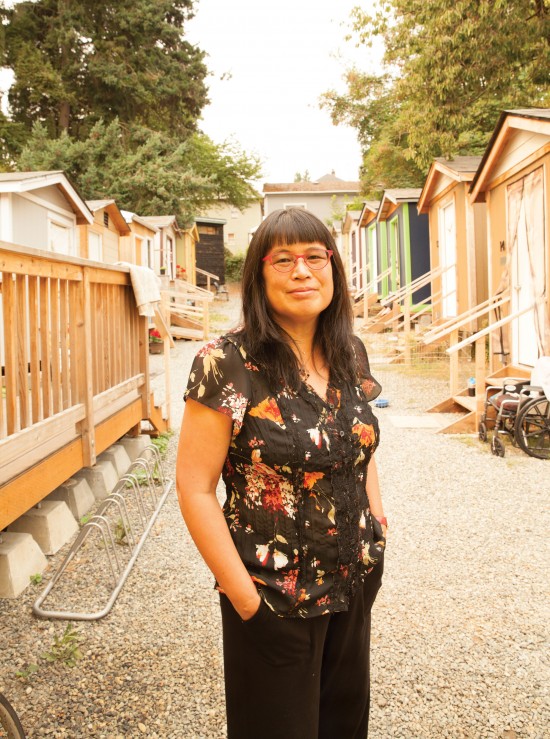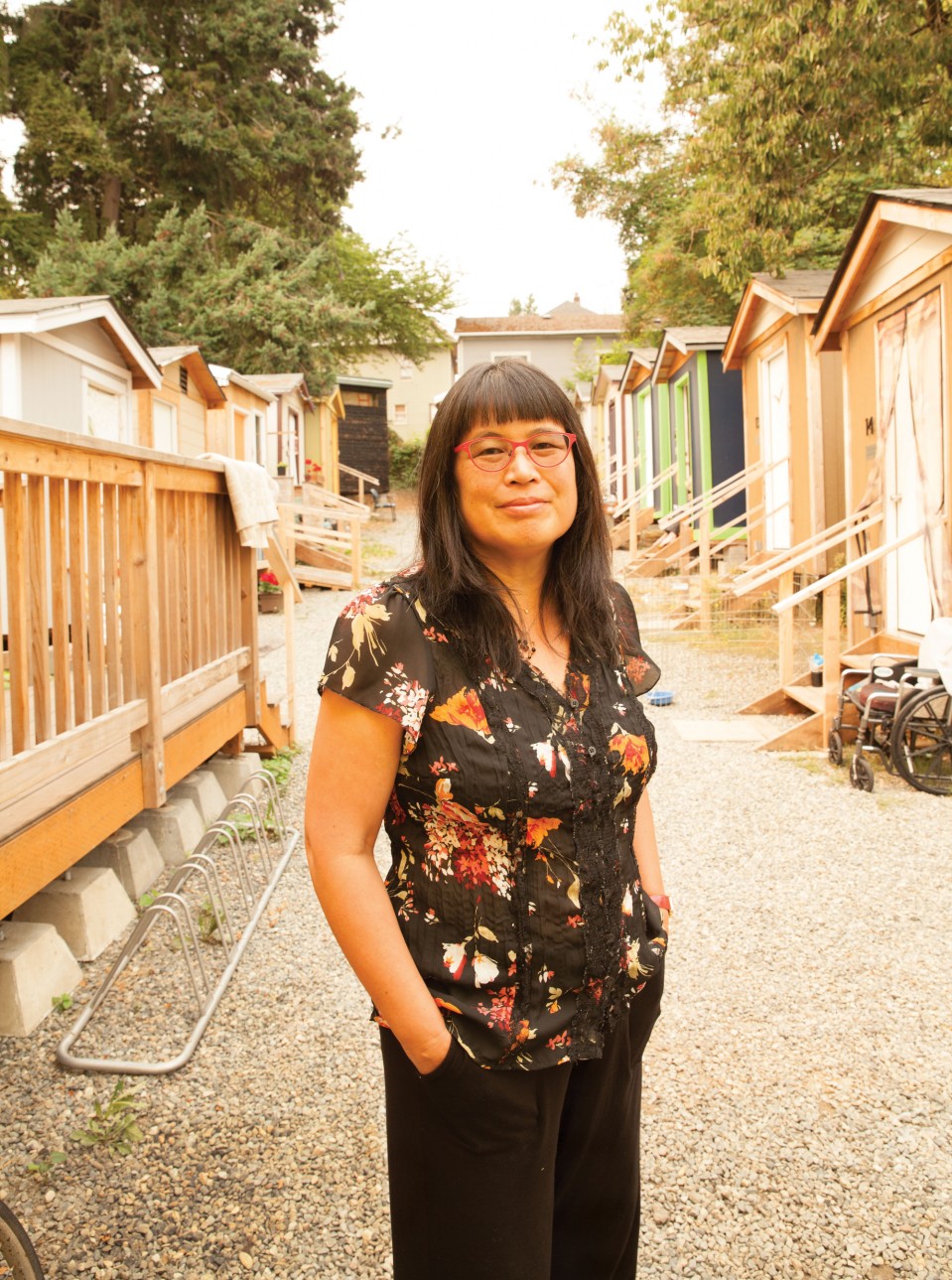Sharon Lee, MArch ’81, MCP ’81
Alumna’s tiny houses help solve huge problem



“I believe very strongly that housing is a human right,” says Sharon Lee, MArch ’81, MCP ’81. As founder and executive director of the Low Income Housing Institute (LIHI), Lee is addressing the housing crisis in Seattle, which has the third-largest homeless population in the United States behind New York City and Los Angeles. One of her solutions, which she launched in fall 2015, is already having a big impact in the city: tiny houses.
LIHI has set up 10 villages in vacant lots with dwellings that are eight feet by 12 feet and include lighting, heating, a window, and a door with a lock. Each village also has security, a counseling office, a communal kitchen, and bathroom facilities. And because the houses are under 120 square feet, they aren’t considered dwelling units, so they can avoid some of the red tape associated with other forms of housing.
“If you want to build an apartment building, it takes a year or two to get financing, a year to get permits, and a year to a year and a half to build. In the meantime, people are literally dying on the streets,” says Lee.
There are approximately 12,000 homeless people in the Seattle area on any given night; the city’s annual point-in-time survey counted 12,112 people experiencing homelessness on January 26, 2018. But with space constraints at shelters, nearly 6,000 of them must fend for themselves on the streets. Over the past year, nearly 1,000 people have taken advantage of the tiny-house communities, built by LIHI with the help of hundreds of volunteers and donors. The city of Seattle funds the utilities to power the houses and pays for social workers and case managers.
Beyond providing temporary shelter, the houses have also served as a vehicle for turning around the lives of many of their occupants. Since 2016, more than 300 residents of the tiny-house villages have moved on to long-term housing, 78 people have reunited with family or friends, and more than 300 have found jobs or other sources of income.
Throughout her career, Lee—who has a grown son and lives with her life partner in Seattle—has developed more than 4,500 units of affordable housing, providing not just the bricks and mortar but also a stable environment for families and underserved people. LIHI, which she founded in 1991, develops and operates housing for low-income and homeless people and provides a range of services, all to help people obtain stable housing and increase self-sufficiency.